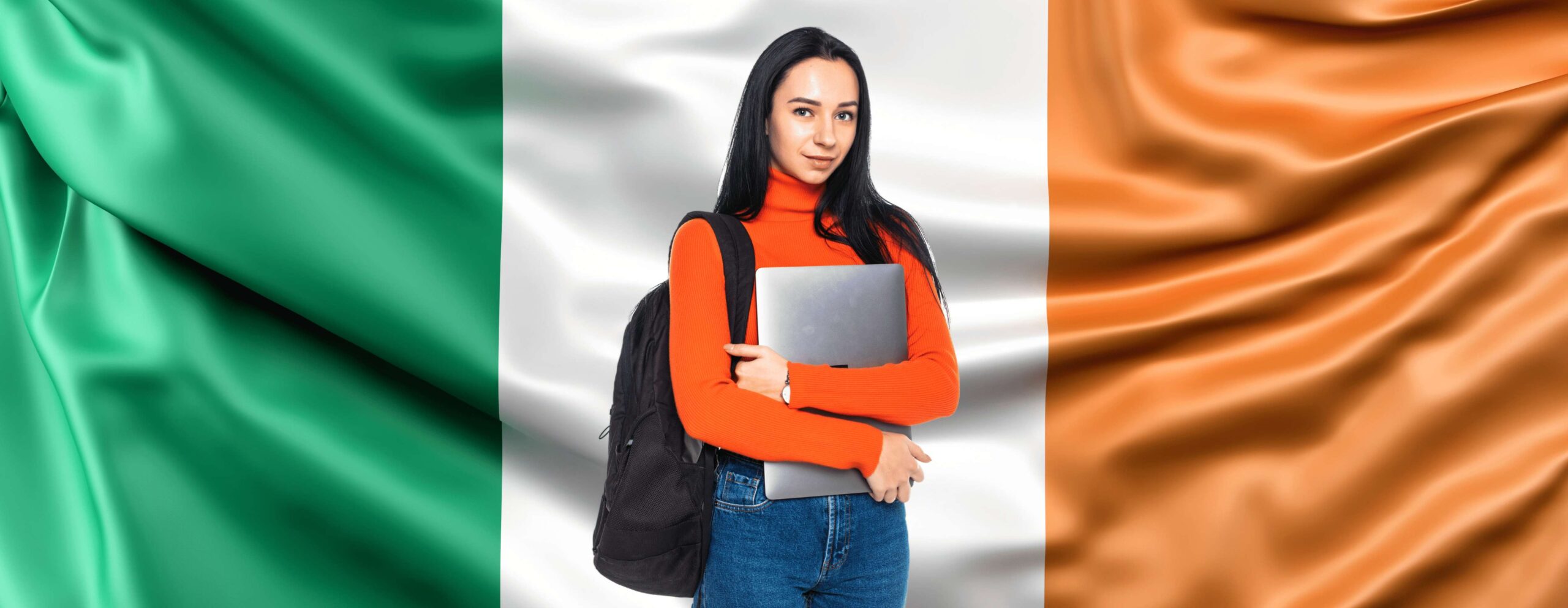Study in Ireland for Indian Students

Ireland has emerged as a prime destination for international students, especially those from India, due to its high-quality education system, friendly communities, and abundant post-study work opportunities. Known as the “Silicon Valley of Europe,” Ireland hosts numerous multinational companies, making it an excellent place for students interested in both technology and business.
Why Study in Ireland?
- Globally Recognized Education: Ireland is home to some of the world’s top universities and institutes, like Trinity College Dublin, University College Dublin, University of Limerick, and National University of Ireland Galway. Irish degrees are internationally recognized and respected, enhancing global career prospects.
- Tech and Business Hub: With headquarters of tech giants like Google, Facebook, Apple, and Microsoft, Ireland offers students unique industry exposure and potential career opportunities in IT, business, finance, and more.
- Affordable Tuition Fees and Scholarships: Compared to other Western countries, Ireland offers relatively affordable tuition fees. Additionally, several scholarships are available to help reduce financial burdens for international students.
- Post-Study Work Opportunities: Ireland provides a two-year stay-back option for international students who complete a postgraduate degree. This makes it easier for graduates to gain valuable work experience and potentially secure permanent employment.
- Cultural and Social Diversity: Ireland is known for its rich cultural heritage and welcoming environment. The country offers a vibrant social life and opportunities to engage with students from around the world.
- English-Speaking Country: Ireland is one of the few English-speaking countries in the European Union, making it an attractive destination for Indian students seeking to study and communicate in English.
Eligibility Requirements for Indian Students
1. Academic Qualifications:
- Undergraduate Programs: Completion of Class 12 from a recognized Indian board. Most universities require a minimum of 70-80% for entry, depending on the course.
- Postgraduate Programs: A bachelor’s degree from a recognized university in India, typically with a GPA of 2.7 or higher (60-70%). Competitive programs, especially in business and technology, may have higher requirements.
- Ph.D. Programs: A master’s degree in a related field, often with strong academic and research experience. Some programs may require a research proposal.
2. English Language Proficiency:
English proficiency is essential for Indian students, demonstrated through exams like IELTS, TOEFL, or PTE.
- Undergraduate: IELTS score of 6.0 with no band less than 5.5; TOEFL iBT score of 80.
- Postgraduate: IELTS score of 6.5 with no band less than 6.0; TOEFL iBT score of 90-100.
- Ph.D.: Requirements may vary, though a minimum IELTS score of 6.5 or TOEFL score of 90 is commonly acceptable.
3. Visa Requirements:
- Offer Letter: You must have an offer letter from an Irish university.
- Proof of Funds: Financial documents showing adequate funds to cover tuition and living expenses. The minimum amount required is approximately €7,000 for living costs.
- Health Insurance: Health insurance is mandatory for all non-EU international students studying in Ireland.
- Medical and Police Clearance: Certain visa applications may require medical clearance and a police certificate.
Application Process
1. Choose Your Program and University:
Research and identify courses and universities that align with your academic and career goals. Universities in Ireland offer a range of programs in engineering, business, IT, healthcare, and the arts.
2. Prepare Required Documents:
Required documents for applications typically include:
- Academic transcripts and certificates
- English language test scores (IELTS, TOEFL, or PTE)
- Statement of Purpose (SOP)
- Letters of Recommendation (LORs)
- Updated Resume or CV
- Passport copy
- Financial documents showing proof of funds
3. Submit Your Application:
Undergraduate applications are submitted through the Central Applications Office (CAO). For postgraduate programs, applications are usually submitted directly to the university via its online portal.
4. Receive Offer and Pay Deposit:
Once accepted, students may need to pay a deposit to confirm their place in the program. After payment, the university provides a formal Offer Letter, which is required for visa applications.
5. Apply for a Student Visa:
Submit a visa application online. Key requirements include the Offer Letter, proof of funds, health insurance, and English proficiency scores. You may also need to attend a visa interview.
6. Arrange Accommodation and Travel:
After securing the visa, arrange for accommodation. Options include on-campus housing, private rentals, or homestays. Book travel to Ireland as per the academic start date.
Cost of Studying and Living in Ireland

1. Tuition Fees:
Tuition fees vary by university, program, and study level:
- Undergraduate Programs: €9,000 to €20,000 per year.
- Postgraduate Programs: €9,000 to €25,000 per year.
- Ph.D. Programs: €4,000 to €25,000 per year, often lower due to research grants and funding for Ph.D. candidates.
2. Living Expenses:
Monthly living costs in Ireland range from €700 to €1,200, covering accommodation, food, transportation, and personal expenses:
- Accommodation: €400 to €800 per month, depending on location and type.
- Food and Groceries: €150 to €250 per month.
- Transportation: €50 to €100 per month.


3. Health Insurance:
Health insurance costs vary based on the policy, typically between €150 to €300 per year. All non-EU students must have health insurance coverage during their stay.
4. Scholarships:
Several scholarships are available for Indian students:
- Government of Ireland Scholarships: These scholarships cover full tuition and provide a stipend.
- Irish Research Council Scholarships: Available for Ph.D. and research-based master’s programs.
- University-Specific Scholarships: Many Irish universities offer scholarships for international students. Visit each university’s website for specific scholarship opportunities.


Post-Graduation Opportunities
1. Stay-Back Visa (Third-Level Graduate Scheme):
Ireland offers a stay-back visa allowing graduates to remain in Ireland for up to 2 years (for postgraduate degrees) or 1 year (for undergraduate degrees) to work or search for employment.
2. Pathway to Permanent Residency:
After working for a few years, students on a Critical Skills Employment Permit or a General Employment Permit can apply for permanent residency. The Critical Skills Employment Permit is often available to those with in-demand qualifications, especially in fields like IT, engineering, and finance.
University List

Galway Business School
Galway, Ireland

SETU Ireland
Carlow, Ireland

Athlone Institute of Technology
Dublin, Ireland

Griffith College
Dublin, Ireland

CastelEducation
Kerry, Ireland

CCT College Dublin
Dublin, Ireland

Dundalk Institute of Technology
Louth, Ireland

Waterford Institute of Technology
Waterford, Ireland

ACD - American College Dublin
Dublin, Ireland
Conclusion
Ireland is an excellent choice for Indian students due to its high-quality education system, post-study work opportunities, and vibrant social environment. With careful planning and understanding of the academic and visa requirements, Indian students can make the most of their study experience in Ireland, gaining valuable skills, global exposure, and potential career opportunities.

